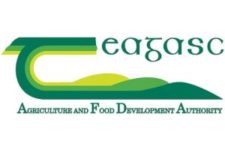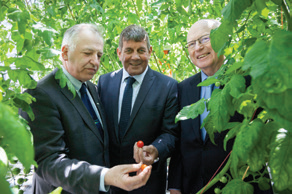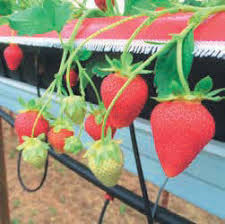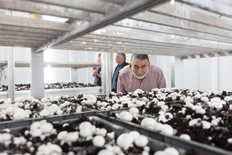Research driversIt was interesting to read a recent research prioritisation document from the Department of Business, Enterprise and Innovation which identified exciting new opportunities including robotics, artificial intelligence, augmented and virtual reality, health and wellbeing, smart and sustainable food production and processing, decarbonising the energy system, sustainable living, and advanced and smart manufacturing. In the horticultural context, all of the above is relevant. Our ability as an industry to adopt and adapt existing technology in production and processing into our sector from other sectors will be paramount in the future. The dependence on labour in horticulture production will need to be reduced in the medium to longer term as labour availability is currently constraining growth in certain sectors. Enhancing the innovative capacity of Irish based horticultural businesses along with their ability to diversify into new markets has become more critical, particularly in light of Brexit. Smart and sustainable food production is a key consideration in avoiding environmental impacts and satisfying a knowledge-driven consumer who is set on buying products with sound environmental credentials. In terms of health and wellbeing, as members of the Horticulture Industry Forum (HIF), we are well versed on the potential which exists for collaboration between the medical sector and the horticulture sector to improve public health and at the same time underpin fresh produce horticulture. If the Irish population ate the recommended daily intake of fruit or vegetables (560g), we would have a tripling of demand for fruit and vegetables (€0.75bn) and a major reduction in the estimated €1.64bn cost of obesity to the Irish health system. While large amounts of research funding go towards looking at the human microbiome, probiotics and gut health, significant positive impacts from increased fruit and vegetable consumption have been known for many decades and consumers are moving in greater numbers towards healthier options.✽ |
New leaves research in cut foliage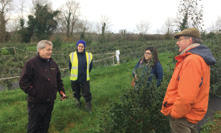 The mild, relative frost-free climate in Southern Ireland is ideal for growing lush, premium foliage and a unique product range has been developed in conjunction with Teagasc and Bord Bia at research stations in Kildalton College, Kilkenny and in Tralee, Co Kerry. Irish foliage now worth €6m in exports is harvested from over 150ha and sold to flower markets in the UK and Holland. Expansion in planted areas supported by the DAFM in past two to three years will see a doubling of the production base coming on stream in 2018/2019. Irish foliage is well positioned to capitalise on the recent surge in environmental accreditation being demanded by the multiples and Teagasc research on sustainable production systems is crucial to progressing the industry and meeting the high regulatory and market specifications. A major research program funded by the DAFM which commenced in 2017 in support of the industry is a collaboration between Teagasc, UCD and industry stakeholders. The work aims to identify novel foliage plant lines and optimum propagation techniques. In addition, epidemiology of key pests of foliage (tortrix moth and capsid) and diseases such as bacterial shot hole of Prunus is being gathered through intensive monitoring and survey work coupled with laboratory and field trials. Environmentally responsible measures will ultimately be sought for growers to tackle these critical issues in line with EU legislation under the Sustainable Use Directive. Given the parallels with the hardy nursery stock industry, results of the New Leaves work will be of benefit to the wider woody ornamental sector. There is an opportunity to hear how this latest research work is progressing and to see at first hand some of the key foliage products at a field event to be held in Kildalton College on 15 August at 11 am. For further details contact Andy Whelton of the Horticultural Development Department at andy.whelton@teagasc.ie ✽ |
APPOINTMENTSLast month Teagasc appointed John Spink as the head of its Crops, Environment and Land Use Programme for a five-year term. Based at Teagasc Oak Park, Carlow, he will lead the organization’s national tillage, forestry, horticulture and environmental, research and knowledge transfer programme. John graduated with a degree in agricultural science from the University of Leeds before starting his professional career as a crop physiologist at Rothamsted Research. From Rothamsted he moved to ADAS based in Hereford in the west of England, where he worked for nearly 20 years, ending up leading the agronomy, crop physiology, crop protection and renewable energy |



